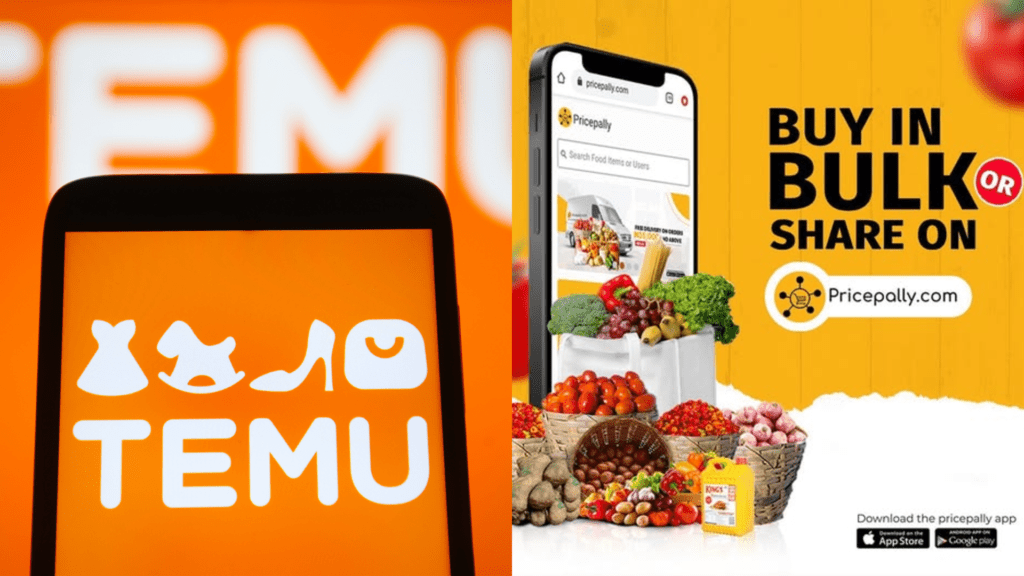Nigeria’s e-commerce sector is experiencing rapid growth, with the market expected to reach $9.54 billion by 2025 and $16.68 billion by 2030, according to Mordor Intelligence. Two emerging players, Temu and Pricepally, are gaining momentum, challenging established platforms like Jumia, Konga, and Jiji for a share of the e-commerce market.
Nigeria’s growing internet penetration, smartphone usage, and digital payment solutions have fueled e-commerce adoption. Professor Uzo Uchenna of Lagos Business School highlights that technology, digitization, and improved telecom infrastructure are driving market expansion.
“Consumers are now shopping both locally and internationally, depending on price advantages,” Uchenna noted.
While Africa’s online shopping trend lags behind markets like Asia, Europe, and the U.S., Nigeria is leading the continent’s digital commerce boom. McKinsey Global Institute projects that by 2025, e-commerce will account for 10% of retail sales in Nigeria, South Africa, and Egypt.
Temu: A Disruptive Force in Nigerian E-Commerce
Temu, a subsidiary of China’s PDD Holdings, recently entered Nigeria after launching in South Africa in early 2024. With its low-cost, direct-to-consumer (D2C) model, Temu aims to undercut established competitors by offering cheap products with direct shipping from manufacturers.
Temu’s aggressive social media marketing campaign has already made it Nigeria’s most downloaded app on both Android and Apple app stores, according to Semafor.
While some customers praise Temu’s affordability and refund policies, others complain about poor product quality and misleading packaging.
“I have had two issues with refunds, and they were prompt. I also received free gifts,” said Diane Bishop, a satisfied customer.
However, another customer, Patricia Jaimr, criticized Temu: “All products had bad quality, smaller sizes, and poor packaging.”
Pricepally: Transforming Grocery Shopping in Nigeria
Unlike Temu, Pricepally focuses on food e-commerce, sourcing directly from local farmers to reduce food waste and provide affordable groceries.
Founded in 2019, the platform aims to empower farmers while ensuring fresh, cost-effective food delivery.
“This is my third year using Pricepally. I hate going to the market, and they deliver fresh, affordable products,” said Thelma Bayoko in a Play Store review.
However, not all experiences have been positive. Omotoyosi Adegbite complained: “They charged me for items not in stock.”
Pricepally responded, stating that they never charge for undelivered items and offer swift refunds in such cases.
Challenges and the Future of Nigerian E-Commerce
Despite Nigeria’s strong e-commerce potential, challenges persist, including:
- Low purchasing power affecting consumer spending
- Logistical issues and delivery inefficiencies
- High competition forcing price wars and platform exits
Many platforms, such as Deal Dey, Efritin, OLX, and Jumia Food, have either shut down or scaled back operations due to these challenges.
However, analysts believe the e-commerce market is improving, with projections that 13% of Nigeria’s total sales will be transacted online by 2026, driven by secure electronic payment solutions (Worldpay).
With Jumia (23M monthly visits), Takealot (10M monthly visits), and emerging players like Temu and Pricepally, competition in Nigeria’s $9.54 billion e-commerce market is intensifying.
As platforms refine their pricing, logistics, and customer service, the Nigerian consumer will ultimately decide the winners.
Stay tuned to 9am News Nigeria for more Breaking News, Business News, Sports updates And Entertainment Gists.
















